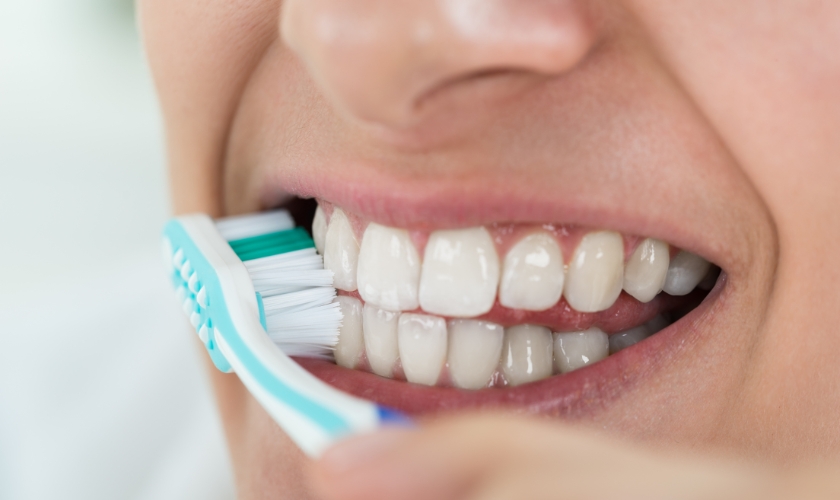New Patients Welcome!

Periodontal disease, also known as gum disease and periodontitis, is a progressive illness. If left untreated, it has the potential to result in tooth loss. The irritation and inflammation of the gingival tissues, which surround and support the teeth, is the beginning of gum disease. The harmful chemicals in plaque are the cause of this inflammation. These poisons lead to a persistent bacterial infection.
Bacteria infect the gingiva, and deep pockets form between the teeth and gums as a result of this infection. The benefits of mild inflammation (known as gingivitis) are fully reversible if the bacterial infection is treated promptly by a Dentist in Ventura, CA. If the bacterial illness advances, however, periodontal disease begins to destroy the gums and jawbone undergirding them, increasing the risk of tooth loss. Periodontal disease can cause bone destruction in certain situations when bacteria from this condition enter other parts of your body via your circulation.

GUM DISEASE: WHAT CAUSES IT?
Gum disease can be hereditary and environmentally influenced. Gum disease occurs in many cases as a result of a combination of genetic and environmental factors. Taking preventative measures to decrease your risk of developing periodontitis might help you live a more comfortable life.
Gum disease can occur as a result of any number of factors, some of which are more serious than others. Here are some of the most prevalent causes:
DENTAL HYGIENE ISSUES
Dental disease can be prevented at home by practicing excellent oral hygiene and eating a well-balanced diet. Regular dental examinations, which include exams, cleanings, and X-rays, are also part of prevention. Home care that is both intensive and professional ensures the natural dentition and supporting bones are preserved. Unremoved bacteria and calculus (tartar) cause gingivitis or periodontitis, both of which result in tooth loss.
EXCESS USE OF TOBACCO
Gum disease is linked to smoking and other habits. According to research, smoking and other forms of tobacco use are among the most important causes of gum disease development and progression. Smokers are also far more likely to have calculus (tartar) build-up on their teeth, deep pockets in the gingival tissue, and significant bone loss than non-smokers.
PREDISPOSITION DUE TO GENETICS
Gum disease may run in families, affecting 30% of the population. Gum disease is more common among individuals with a strong hereditary inclination. Periodontal disease is six times more likely to develop in those who have a genetic predisposition. Genetic tests can reveal susceptibility, and early treatment can prevent the oral cavity from becoming diseased.
MENOPAUSE AND PREGNANCY
Brushing and flossing should be done on a daily basis throughout pregnancy. Gum tissue becomes more sensitive during pregnancy as a result of hormonal changes in the body, making it more prone to gum disease.
CHRONIC STRESS AND AN UNHEALTHY DIET
Stress impairs the body’s immune system, making it more difficult for it to fight infection. Bacterial infection can overcome the body’s defense mechanisms when stress is high. Poor nutrition or malnutrition can also reduce a person’s defenses against periodontal disease and gingivitis, as well as the health of his or her teeth.
RELATED MEDICAL PROBLEMS
Respiratory illness, heart disease, rheumatoid arthritis, and osteoporosis are all examples of medical problems that can exacerbate or accelerate the development and progression of gum disease. Diabetes impairs the body’s ability to use insulin, making bacterial gum infection more difficult to manage and cure.
TEETH GRINDING
The supporting tissue surrounding the teeth may be severely damaged when teeth are clamped or ground. Grinding one’s teeth is often connected to a “poor bite” or tooth alignment problems. Gum disease can speed up the progress of the illness if gingival tissue is destroyed due to grinding as a result of gum disease.
MEDICATION
Gum disease is more common in people who use corticosteroid drugs. Oral contraceptives, heart medicines, antidepressants, and steroids all have an impact on the overall health of teeth and gums, making them more vulnerable to gum disease. Steroid use promotes gingival overgrowth, which causes more frequent swelling and allows germs to proliferate faster in the gum tissue.

GUM DISEASE TREATMENT
A periodontist is a dentist who specializes in the treatment of gum disease and the implantation of dentures. Scaling and root planing are examples of deep pocket cleaning techniques that a periodontist can execute. They may also prescribe antibiotics and antifungals to cure infection and stop the spread of illness.
The dentist may also utilize a variety of treatment options to restore damaged teeth. Tissue transplants can be used by the periodontist to stimulate natural tissue regeneration in the case of tooth loss. If a tooth or several teeth are missing, they can also insert dental implants. The gingival tissue might be recontoured by the periodontist to create an even and aesthetically attractive look where gum recession causes a toothy grin.
PREVENTING PERIODONTAL DISEASE
Gum disease is a serious problem that can lead to considerable damage. The best way to avoid periodontal disease is to prevent it in the first place. Gum disease may be prevented by addressing the root causes and talking about them with your dentist.
If you want to avoid gum disease, it is critical to keep regular appointments with your Dentist in Ventura CA. Your dentist will clean your teeth and remove bacteria and plaque that cause gum disease.
The Dentist in Ventura, CA, will also look for indicators of gum disease. Early identification is critical to curing gingivitis. The sooner a disease is discovered, the better the result. Please consult your dentist if you have any questions or concerns about the causes or treatments for gum disease..





